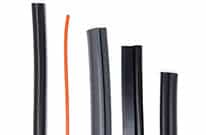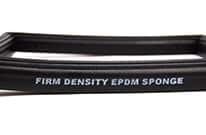How will changes in global trade shape the post-pandemic supply chain? And what do these changes mean for your company as you look for new suppliers and customers? In a recent article for The Globe and Mail, Dene Moore emphasizes the importance of flexibility and resilience. Through interviews with industry analysts and trade experts, Moore captures insights that can help your company both during and after the COVID-19 pandemic.
Acceleration and Disruption
It’s commonly said that “COVID changed everything”, but the pandemic’s effects on global trade aren’t that simple. While it’s true that border closings and transportation-related challenges forced some companies to shorten their supply chains, the search for domestic vendors was well underway before COVID-19. In both China and the United States, for example, policies and pronouncements favored national industries before the pandemic began.
Moreover, the data supports the argument that COVID-19 accelerated rather than started a decline in international commerce. At the end of the World War II, global trade represented about 5% of total global domestic product. This number peaked at approximately 30% nearly a decade ago. More recently, problems within the World Trade Organization (WTO) have made it more difficult to resolve trade disputes. There are also concerns about intellectual property protection within WTO member nations.
Flexible and Resilient
For companies in Canada, a country that sends 75% of its exports to the United States, the health of the American economy is of special concern because COVID-19 cases have risen again. For Canadian companies that are concerned about border crossings and plant shutdowns, the choice of a domestic supplier can reduce these and other risks. There are also opportunities to attract Canadian customers who are concerned about product quality and on-time deliveries from China.
Long-term, there are additional incentives for businesses that want to localize their supply chains. Distant suppliers aren’t necessarily rigid and inelastic, but a vendor with a nearby warehouse is better able to ship on-demand and ensure on-time deliveries. A closer supplier that offers quick-turn prototypes, low-to-medium production volumes, and that keeps raw materials in-stock also offers flexibility and resiliency. Added-value services can support outsourced fabrication as well.
Talk to Elasto Proxy
Do you buy industrial rubber products like seals, gaskets, and insulation? Are you looking for ways to strengthen your supply chain both during and after the pandemic? Elasto Proxy is a rubber fabricator and distributor with a manufacturing center near Montreal, Canada, and warehouses near major transportation corridors in Canada, the United States, and Europe. When you partner with us, you can reduce supply chain risk and benefit from our flexible, resilient operations.
For example, Elasto Proxy can use its purchasing power to buy the raw materials that you need in cost-effective quantities. We can then store these materials in our warehouses and fabricate finished goods on-demand or in response to your sales forecasts. From quick-turn prototypes to low-to-medium quantities, we use water jetting that so that you don’t have to pay for or wait for tooling. We can even put all of the parts that you need for a build inside a box that travels right from your dock to production.









